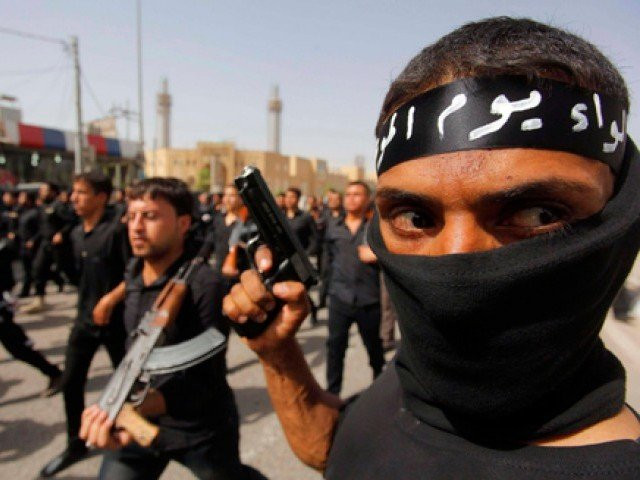Has the US opened new doors for ISIS’ return?
Fear of ISIS making a comeback has strengthened following the two directives issued in the wake of Soleimani’s...

The fear of ISIS making a comeback has strengthened following the two directives issued in the wake of Soleimani’s killing. First is the resolution passed by the Iraqi parliament seeking an end to the agreement the country entered with Washington in 2014 to send 5,200 troops in Iraq to fight ISIS. Second, the US decision to halt operations against ISIS to fortify the American-led coalition troops’ position against a retributive attack by Iran.
Experts believe this vacuum will become an ideal opportunity for ISIS to make a comeback.
Finding this new development counterproductive to ISIS’ elimination, Sam Heller, an analyst at the International Crisis Group said: “This is precisely the sort of deus ex machina the organization needed, to give it room to operate and to allow it to break out of its current marginality.” Considering the shift of focus from ISIS to self-protection distractive, Dana Stroul, a former senior Pentagon official and the Co-Chairwoman of the Syria Study Group, said: “They are going to be too focused on protecting the mission instead of on fighting ISIS.” Ilan Goldenberg, the Director of the Middle East Security Program, believes that the chaos in the making would create conditions for ISIS to flourish. “That is a perfect situation for ISIS to regenerate,” he said.
Since the attack on Soleimani and Abdul Mahdi al Muhandis, the leader of the Iranian-backed Iraqi militia, is being seen as an act of deceit and double-game, it could trigger the so-called green-on-blue attacks by Iraqi forces against their American trainers. The Iraqi Prime Minister Adel Abdul Mehdi, in an address to the Parliament, said that both commanders were killed when they were to begin a truce mission to build bridges between Iran and the US. Mehdi claimed that President Trump had asked him to mediate with Tehran. “We have not really had the green-on-blue attacks in Iraq that we have in Afghanistan, but the risk of that would certainly rise,” said Douglas London, a professor and a former CIA official.
Several attempts have been made to dismantle ISIS. In 2014, the organisation drew international ire when it built a militant proto-state and proclaimed a global “caliphate”. To respond to the group’s growing influence that could now orchestrate attacks beyond Iraq and Syria, the US launched Operation Inherent Resolve in 2014. This global consensus to defeat the organisation enabled the US-led coalition to declare victory over the group in December 2017. By March 2019, the forces claimed to have eliminated the last pockets of territory in eastern Syria. Despite these victory claims, an assurance that the group was finally defeated was difficult to come about. The Lead Inspector General’s report, however, reinforced the fear of ISIS’ return with a revelation that the Iraqi Security Forces and the Syrian Democratic Forces lacked the capacity to sustain a long-term operation against ISIS militants. Already, according to the report, the group has infiltrated 18,000 fighters in Iraq and Syria.
A similar apprehension about the region falling back into the hands of the insurgents was made when the US announced it was suspending its counterterrorism mission in Iraq in 2018. Bret H McGurk, the former US special envoy to the coalition fighting ISIS, had called the decision a retreat to 2011, when the US pulled out from Iraq. “If we leave Iraq, that will just increase further the running room for Iran and Shia militia groups and also, the vacuum that we’ll see groups like ISIS fill, and we’ll be right back to where we were.”
Some may argue that it is about time that the Middle East is handed back to who it belongs to — its people. The mandate of Operation Inherent Resolve included diplomacy, governance, humanitarian assistance, and a stabilisation programme. But, the poor performance of the Iraqi government manifested in rising corruption, ineffective and failed economic policies and unstoppable bomb blasts, ripping the country apart. This suggests that the US failed to bring peace in Iraq, just like in Afghanistan. It shows that the US never had a plan to deal with Iraq’s political and economic crisis, the Syrian conflict, or for the tens of thousands of ISIS prisoners it had created during its decade long stay in the region. Therefore, the argument that Iraq will plunge into a deeper crisis, if the US pulls out, lacks audience.
Had the US been serious in combating ISIS or returning peace to the region, General Soleimani would not have been killed. He had become a common cause between Washington and Tehran’s clerical rulers against ISIS militants. He was the guiding hand behind the Iranian-backed militias in Iraq and Syria, carrying out ground operations against ISIS, while American jets, helicopters, and drones provided air power.
This non-seriousness also does not sit well with the amount the US has spent on the war in Iraq — a staggering $765 billion as of March 31, 2019. This is besides the cost incurred by the state department and USAID, which is believed to be around $100 billion. Why would a country with the stature as of the US, squander such a huge fortune, for nothing?
This brings into question the US intention to eradicate terrorism from Iraq and by extension from the Middle East.
The escalation with Iran — from revoking the nuclear deal to pressurising its allies to sever economic ties with Iran, to killing its General — will further open the Middle East to sectarian conflicts, ethnic division, and empower extremists and create new war.
Published in The Express Tribune, January 9th, 2020.
Like Opinion & Editorial on Facebook, follow @ETOpEd on Twitter to receive all updates on all our daily pieces.















COMMENTS
Comments are moderated and generally will be posted if they are on-topic and not abusive.
For more information, please see our Comments FAQ